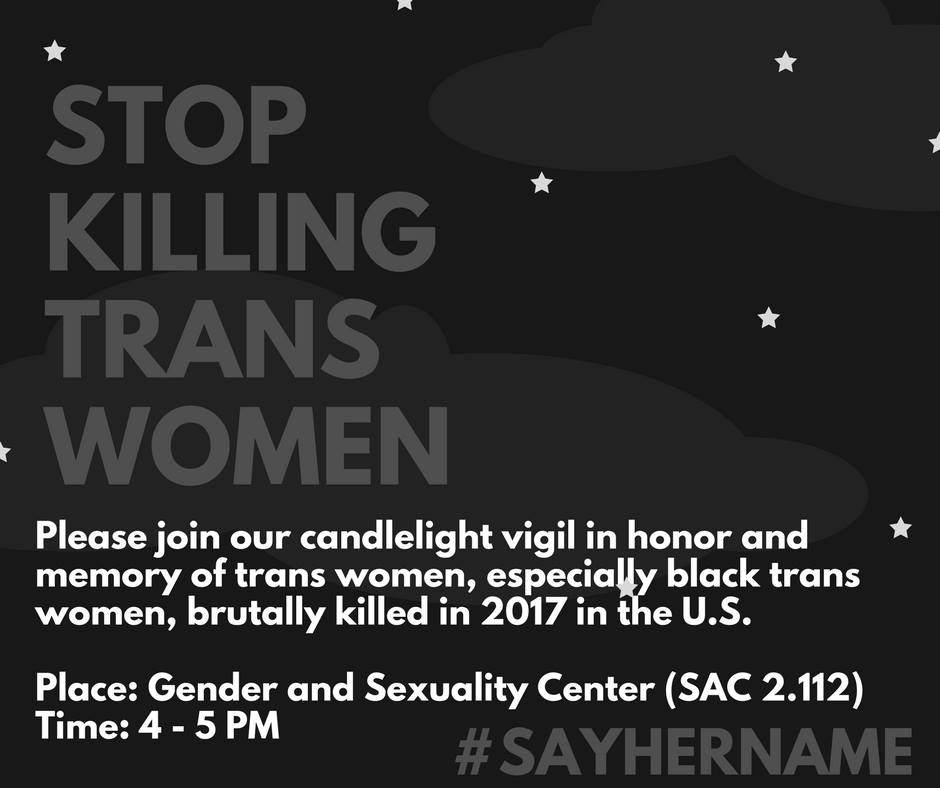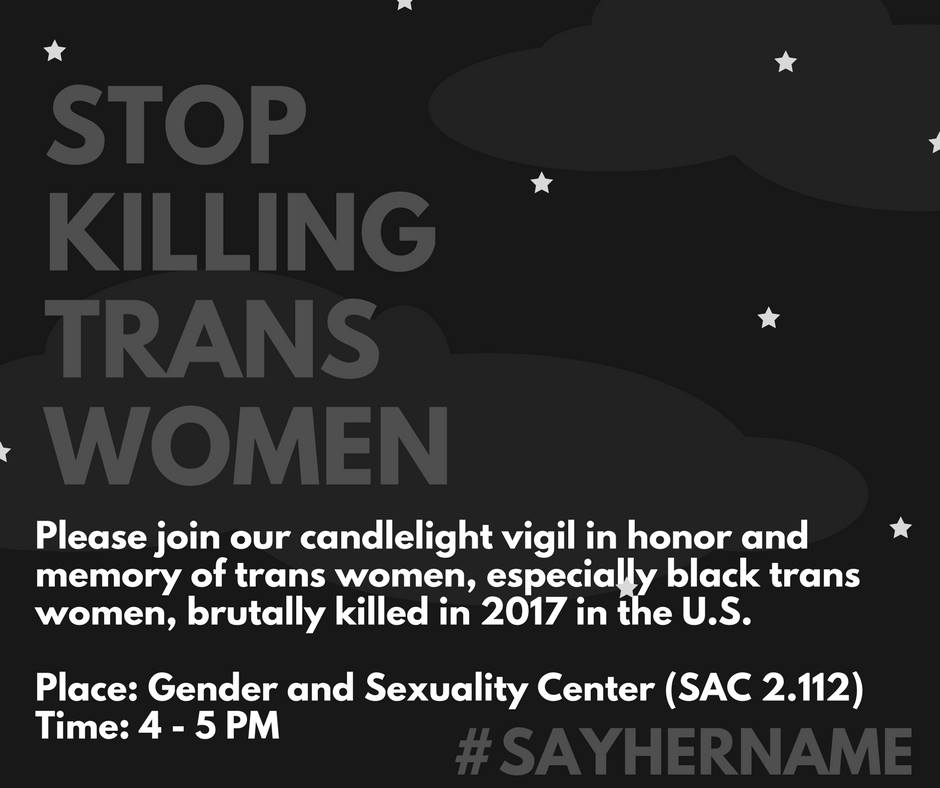On Friday Mar. 3, the Gender and Sexuality Center at the University of Texas at Austin collaborated with Queer People of Color, Black Radical Collective and other trans-advocacy groups in the community to held a candlelight vigil for seven trans women, six of whom were black and killed earlier this year in the United States.
Story by Imani Sebri
Black trans women experience disproportionate amounts of discrimination at both a structural and interpersonal level. The #SayHerName campaign, a branch of the Black Lives Matter movement, seeks to highlight and combat the very specific kind of danger black trans women face by simply existing in their bodies.
The ceremony began with attendees reading the names and backgrounds of each individual woman, followed by the lighting of a candle in their honor, and finally a moment of silence. In organizing this vigil, Ashley Choi, international relations and global studies senior, thought it imperative to have a trans activist present to open dialogue about this alarming issue and what allies should do to help.
Carmarion D. Anderson is the co-founder and executive director of Black Transwomen Inc., an organization dedicated to advocating for and protecting the life and rights of black trans women across the nation. “The first step is to adopt empathy, not sympathy,” Anderson says. “We don’t need that. We need allies to be intentional about their empathy and in doing that, we can really fight this together.”
Similarly, Choi says, “We are not doing enough as cisgender allies to combat transphobia. We have become, or have always been, too complacent.”
This brings up the question of what allies of the trans community should do. “Acknowledging isn’t enough,” Choi says. “Reaching out to locally-based groups fighting for transgender rights or any groups in solidarity with our trans siblings [is important]. Call out your local and state governments as well.”
Allyship can and should be practiced on a more interpersonal level as well. Tangible, everyday gestures should be at the forefront of every ally’s mind when discussing how trans people should be protected by cisgendered individuals.
“We need to be more outward with our support for trans women, so that they know when the time comes for an ally to stick up for them, they won’t be concerned with the possibility of no one being there for them,” women and gender studies sophomore Callum Goulet says.
Finding ways to aid trans people within institutions like the University of Texas at Austin is important too. “UT’s role in protecting trans students can be as minimal as incorporating gender-inclusive bathrooms in each building,” Choi says. “That shouldn’t be an ongoing issue.”
Black Transwomen Inc., located in Dallas, has an array of resources for trans people in need. “We have advice blogs and counseling,” Anderson says. “We have a national conference happening Apr. 24 through 30. We bring in individuals and ask them to speak about the black trans experience, and most importantly, we make sure they have a seat at the table and a family,” Anderson says.
In many cases, resources can be the lifeline and support system for many trans women. Advocacy groups such as Texas Queer and Trans Students Alliance, TransAction and the Gender and Sexuality Center on the UT campus are all available for trans people and allies alike to seek out information or resources.
“The fight affects all of us,” Anderson says, “This is not just a trans issue. This is a human rights issue, and if you’re human, if you breathe, if your blood is red and if you piss in peace*— in every issue that targets society, we can take ownership of and we can all be allies,” Anderson says.
#SayHerName: Mesha Caldwell. Jamie Lee Wounded Arrow. Jojo Striker. Jaquarrius Holland. Keke Collier. Chyna Doll Dupree Gibson. Ciara McElveen.
*Anderson referred to the SB6 bill that would force transgender individuals to use the bathroom of the gender they were assigned at birth. The hearing for this bill is Tuesday, March 7th, from 8 a.m. to8 p.m. at the Texas State Capitol.












































